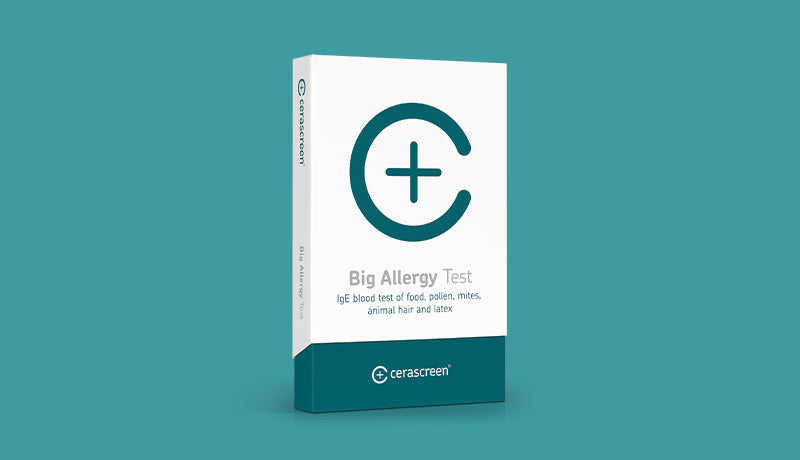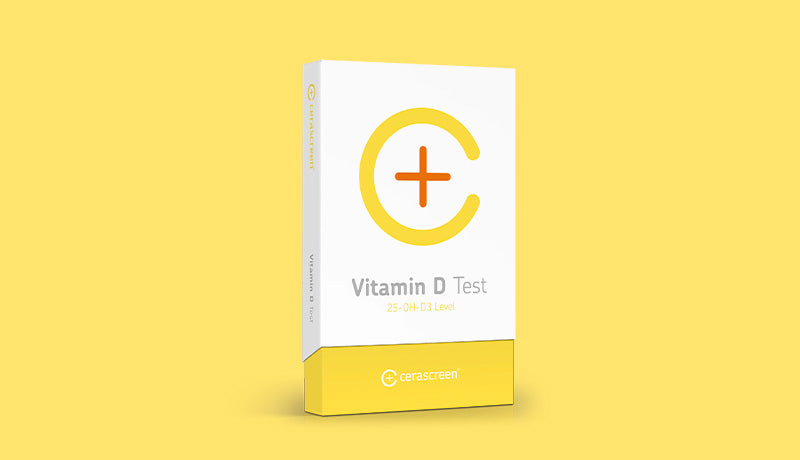Women’s health
It is no secret that women live longer than men. Of course, we know that medical advances in women’s health have had a part to play in this; however, there is still a lot we don’t know about the gender gap in health. Experts have looked into this phenomenon by studying how biological, behavioural and environmental factors impact women’s health. The female advantage in terms of health has also been explained by the differences in hormones, such as oestrogen, levels, which affect – for example – weight gain, mood and skin health.
So, while women’s health has been a complex topic for years, there’s nothing new about regularly boosting and checking your health. We’ll help you identify deficiencies as well as recommend actions you can take to feel at the top of your game! With our home test kits, you can check various vitamin, mineral and hormone levels – and as a result, optimise your health and well-being.

Tests for women’s health
With our home test kits, you can check various vitamin, mineral and hormone levels – and as a result, optimise your health and well-being.

Ferritin Test
Iron Level
- examines your current ferritin (iron) levels
- prevent iron deficiency anaemia in the long term
- receive information about symptoms: tiredness, paleness, dry skin, brittle nails, frequent infections
- benefit from recommendations on nutrition and iron supplements

Vitamin D Test
25-OH-D3 Level
- examines your current vitamin D3 levels
- receive information on how vitamin D deficiency can cause fatigue and muscle weakness, among other things
- discover how to improve your bone health and immune system
- learn about whether you would benefit from taking vitamin D supplements

DNA Skin Test
Test individual nutrient requirements for your skin
- collect a saliva sample in the comfort of your own home
- benefit from state-of-the-art analysis of your DNA
- receive information about your skin’s individual requirements
- learn about the role of your DNA in the health and ageing processes of your skin

Elevate Your Well-Being: Empowering Women's Health Through Nutritional Coaching
Women’s health care
Sure, anyone who is looking to correct a vitamin deficiency may have trouble doing so if they live in cold climates, where there is little sun exposure. Vegans and vegetarians may naturally find it difficult to consume enough iron in their diet. But whatever the problem, cerascreen prides itself on finding the solution when it comes to women’s health.
Home test kits are a great way to keep your health in check – especially at a time when it is not as easy to visit your doctor in person. Such self-tests mean you can take blood or saliva samples within the comfort of your own home – whenever suits you best. After sending off your sample, you will receive a comprehensive results report that explains where your health is at and what you can do to further boost your vitality.
What are normal iron levels for women?
Iron deficiency is the single most common deficiency in the world: a hefty total of two billion people worldwide suffer from a lack of iron. There are particular groups of people who are prone to iron deficiency, including vegetarians and vegans, senior citizens and endurance athletes. So, what have normal iron levels got to do with women’s health? Women generally are especially prone to this deficiency, during menstruation and particularly during pregnancy or breastfeeding, which is why it is vital for them to maintain normal iron levels.
Symptoms of iron deficiency include hair loss, brittle nails, weakness, headaches and pale skin. Whether or not you fall into the above risk groups, it is always good practice to ensure that you check for normal iron levels in your blood via a blood test. To give you some idea of a woman’s daily iron requirement, women aged between 19 and 59 years should aim for 15 milligrams of iron per day, pregnant women for 30 milligrams, and women over 50 years of age for 10 milligrams.
The great news is that iron deficiency can be resolved by adjusting your diet or taking supplements. While meats high in iron include chicken eggs and pork or beef liver, vegans and vegetarians can enjoy plant-based foods with iron content, such as spinach, kale and beetroot.
To gain more insights into iron deficiency causes, symptoms and treatment, read our Health Portal article.
Skin health: sure-fire ways to achieve healthy skin
Representing around 16 per cent of our entire body weight, our skin is our largest organ. It thus only makes sense that we understand how to keep it healthy and happy, and with conditions such as acne, hyperpigmentation, slow wound healing and general inflammation, it is often visibly clear when our skin health is not at its best.
Research has identified that various factors, such as our age, gender, DNA, illnesses, microbiome (gut flora) and hormones play a large role in our skin health. It’s furthermore no secret that sleep can work wonders when it comes to achieving healthy skin. Whether we are aware of these important factors, we often still overlook them in our daily lives.
So, what does healthy skin demand? Nutrients, such as vitamins C, E, D as well as zinc and unsaturated fatty acids are absolutely crucial for boosting skin health. They stimulate the formation of new skill cells, so that the skin can carry out its function as a protective barrier. While vitamin C forms collagen, vitamin D ensures that wounds heal quicker and is considered a good treatment for acne – not to mention, sufficient vitamin D levels also reduce the risk of developing skin cancer.
Did you know that zinc, according to various studies, counteracts inflammation in the skin, especially in acne?
Curious to find out more about vitamin D deficiency and the health benefits of this vitamin? Then visit our Health Portal article here.
Health check for women: sex hormones, hair and health
Oestrogen levels play a large role in women’s health – probably more than we know! Hair loss is a common symptom of menopause that affects around 20 to 60 per cent of all women by the time they reach 60 years of age. During menopause, the concentration of the female sex hormone oestrogen in women declines, while the male sex hormone androgen increases.
Even before menopause, the concentration of sex hormones often changes, which can affect a woman’s hair and skin health. These pre-menopausal hormonal fluctuations can cause excessive production of androgens, which then contribute to increased hair loss during menopause.
In general, you can add nutrients to strengthen your hair and combat any hormonal fluctuations through a conscious diet. If you have an oestrogen deficiency, you may want to consider eating certain foods, such as pumpkin seeds, tofu, strawberries or broccoli.
You’re guaranteed to find more facts about women’s health and the function of oestrogen – in women and men – in our dedicated blog article.
Health Portal
In our Health Portal you will find reliable and useful information on everything to do with health, nutrition and fitness. As often as possible, our articles are researched and written by writes with health,medical or beauty experience.







